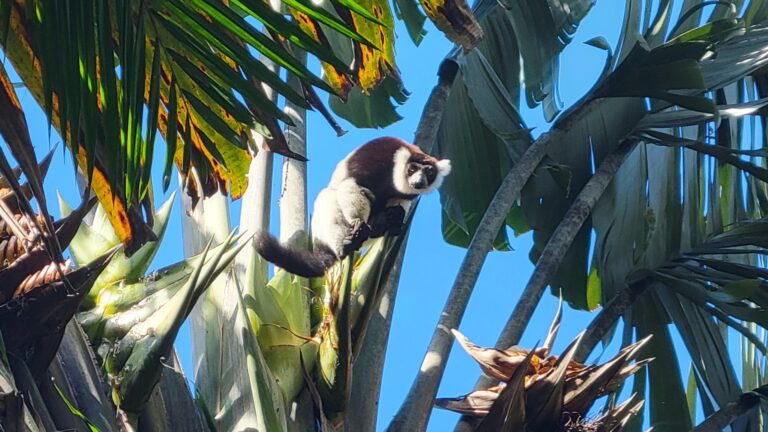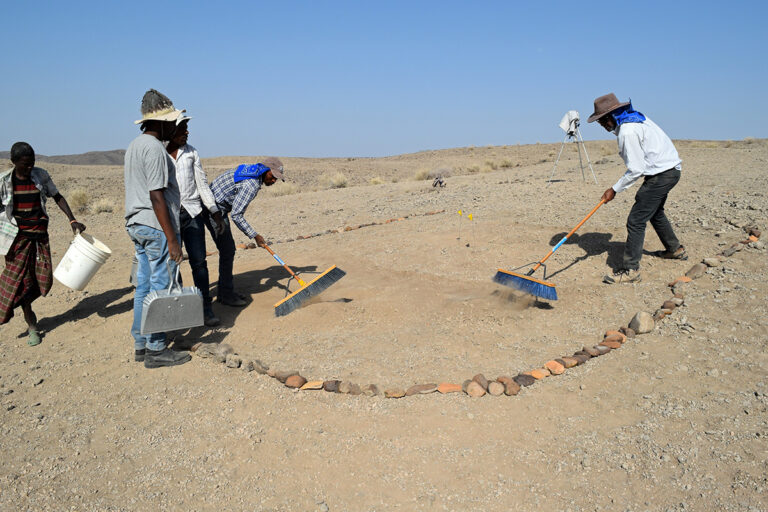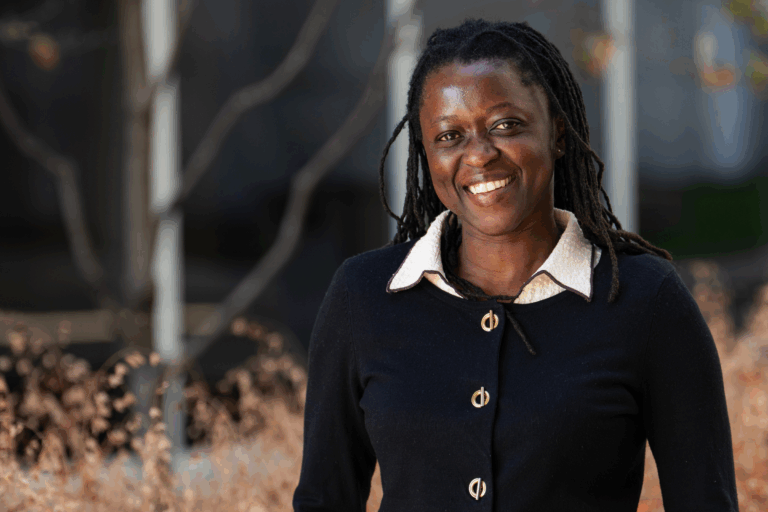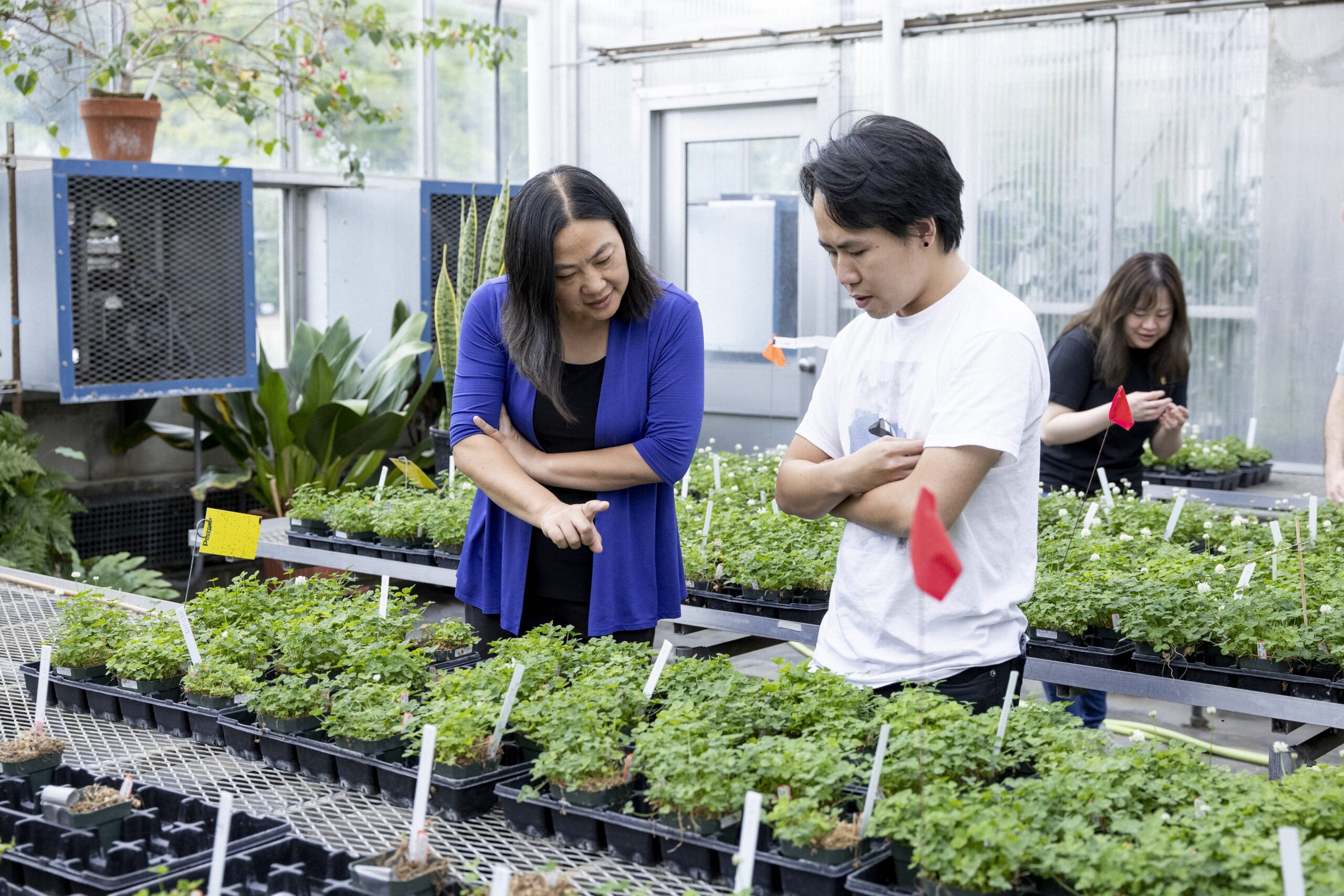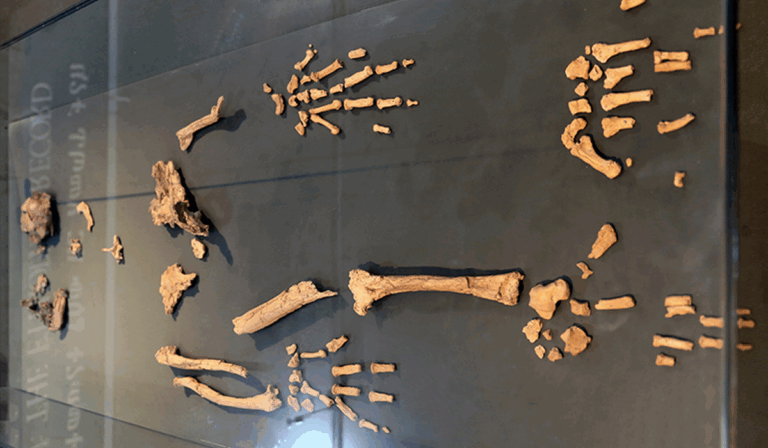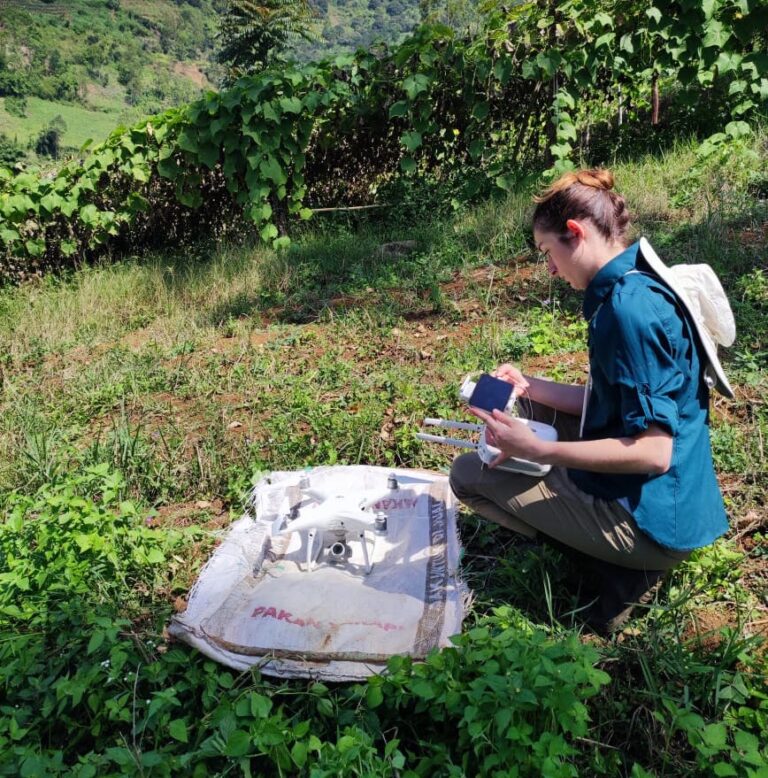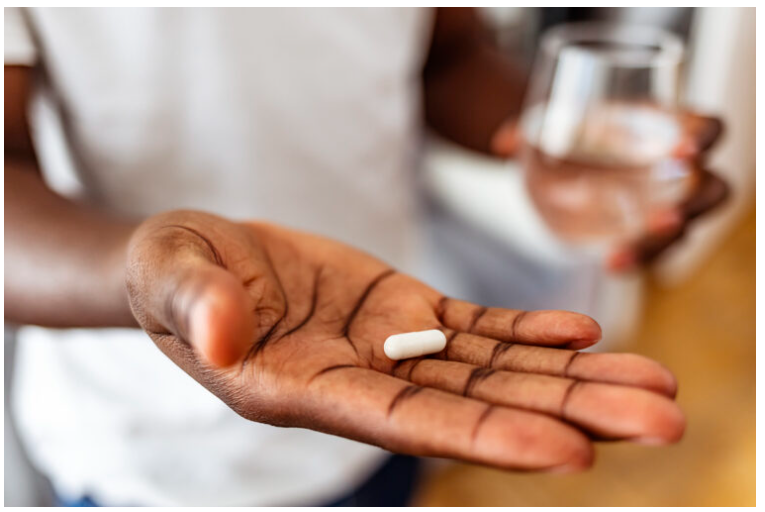Human-wildlife interaction in Madagascar
Three WashU researchers studying human-wildlife interaction in the forests of Madagascar have approached their research in a unique way – one that recognizes that protecting wildlife requires protecting people.
Ancestor in the trees: A closer look at a not-so-distant relative
Sifting through the seemingly endless sands of Ethiopia’s Afar Rift, researchers have uncovered telling remnants of a long-lost human ancestor.
A conversation with pediatric HIV researcher Massy Mutumba
Growing up in a world saturated by fear of HIV and AIDS, WashU Public Health’s Massy Mutumba developed a commitment to help her country fight the HIV epidemic.
Researcher wins $5M NIH grant to improve mental health care for HIV patients
Proscovia Nabunya, an associate professor at the Brown School, has received a $5 million federal grant from the National Institute of Mental Health, part of the National Institutes of Health (NIH), to streamline mental health treatment and HIV medication support for adolescents living with HIV in rural Uganda.
Zhong wins several major research grants
Xuehua Zhong, a professor of biology and the Dean’s Distinguished Professorial Scholar, has received several major federal grants to advance her pioneering work in plant epigenetics, the molecular processes that regulate gene expression without altering DNA.
Analysis of 4.4-million-year-old ankle exposes how earliest ancestors moved, evolved
A new study from Washington University in St. Louis, published October 15 in Communications Biology, presents compelling evidence to support the hypothesis that humans evolved from an African ape-like ancestor.
Reimagining the Nile: The human, political and environmental legacy of Egypt’s Aswan High Dam
In the hot southern Egypt sun, a monument to modern ambition bisects the Nile — a massive rockfill dam once hailed as a triumph of engineering, anticolonial defiance and national pride. But beneath the surface of this vast construction lies a deeper, more complex story — one of displacement, Cold War deal-making, pan-Arab solidarity and shifting landscapes both physical and political.
Several alumni earn Fulbright awards
Eight recent alumni and one current student of Washington University in St. Louis earned Fulbright awards to travel abroad to teach English or to conduct research in the 2025-26 academic year.
Environmental futures
Across all Washington University in St. Louis campuses, scores of researchers share a drive to understand the natural forces that shape our climate, health, culture and physical world.
Machine learning could help predict adherence to HIV treatment
Nearly 85% of the 1.7 million adolescents with HIV live in sub-Saharan Africa, along with half of the nearly 40 million people in the world living with HIV. Although the government in Uganda provides free antiretroviral treatment (ART), adherence to the regimen by adolescents ages 10-16 is low, increasing the potential for the virus to further spread.
